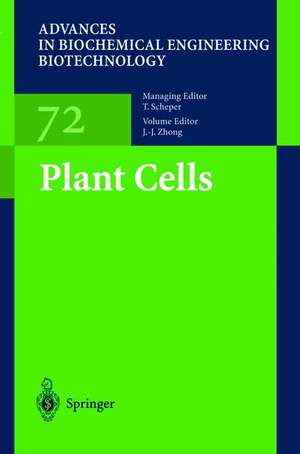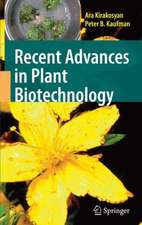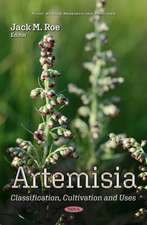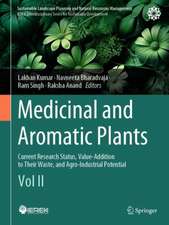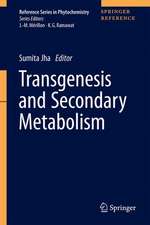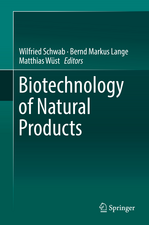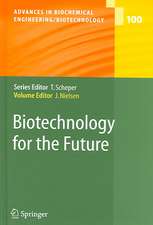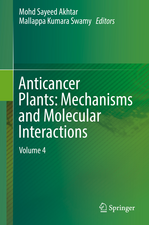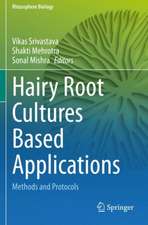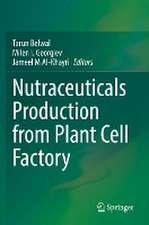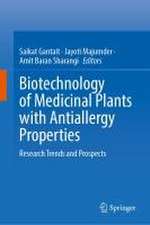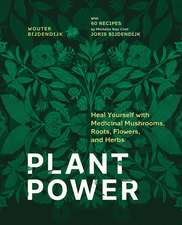Plant Cells: Advances in Biochemical Engineering/Biotechnology, cartea 72
Editat de J.-J. Zhongen Limba Engleză Hardback – 10 aug 2001
| Toate formatele și edițiile | Preț | Express |
|---|---|---|
| Paperback (1) | 1742.52 lei 6-8 săpt. | |
| Springer Berlin, Heidelberg – 9 dec 2010 | 1742.52 lei 6-8 săpt. | |
| Hardback (1) | 1748.57 lei 6-8 săpt. | |
| Springer Berlin, Heidelberg – 10 aug 2001 | 1748.57 lei 6-8 săpt. |
Din seria Advances in Biochemical Engineering/Biotechnology
- 18%
 Preț: 1211.32 lei
Preț: 1211.32 lei - 18%
 Preț: 1212.10 lei
Preț: 1212.10 lei -
 Preț: 369.86 lei
Preț: 369.86 lei - 18%
 Preț: 1752.82 lei
Preț: 1752.82 lei -
 Preț: 368.89 lei
Preț: 368.89 lei - 18%
 Preț: 1753.72 lei
Preț: 1753.72 lei - 18%
 Preț: 1744.56 lei
Preț: 1744.56 lei - 18%
 Preț: 2006.15 lei
Preț: 2006.15 lei -
 Preț: 367.45 lei
Preț: 367.45 lei -
 Preț: 371.20 lei
Preț: 371.20 lei - 18%
 Preț: 1762.58 lei
Preț: 1762.58 lei - 18%
 Preț: 2379.40 lei
Preț: 2379.40 lei - 18%
 Preț: 1744.60 lei
Preț: 1744.60 lei - 18%
 Preț: 2377.90 lei
Preț: 2377.90 lei - 18%
 Preț: 1333.07 lei
Preț: 1333.07 lei -
 Preț: 370.06 lei
Preț: 370.06 lei - 18%
 Preț: 2370.41 lei
Preț: 2370.41 lei - 15%
 Preț: 616.67 lei
Preț: 616.67 lei - 18%
 Preț: 1750.64 lei
Preț: 1750.64 lei - 18%
 Preț: 1745.53 lei
Preț: 1745.53 lei - 5%
 Preț: 1360.44 lei
Preț: 1360.44 lei - 5%
 Preț: 2089.19 lei
Preț: 2089.19 lei - 18%
 Preț: 1165.96 lei
Preț: 1165.96 lei - 18%
 Preț: 1745.85 lei
Preț: 1745.85 lei - 24%
 Preț: 1114.37 lei
Preț: 1114.37 lei - 18%
 Preț: 1169.73 lei
Preț: 1169.73 lei - 24%
 Preț: 1673.77 lei
Preț: 1673.77 lei - 18%
 Preț: 1751.45 lei
Preț: 1751.45 lei - 18%
 Preț: 2380.93 lei
Preț: 2380.93 lei - 18%
 Preț: 1746.16 lei
Preț: 1746.16 lei - 18%
 Preț: 2370.95 lei
Preț: 2370.95 lei - 18%
 Preț: 2003.94 lei
Preț: 2003.94 lei - 18%
 Preț: 2001.05 lei
Preț: 2001.05 lei - 18%
 Preț: 1165.66 lei
Preț: 1165.66 lei - 18%
 Preț: 1744.63 lei
Preț: 1744.63 lei - 18%
 Preț: 902.99 lei
Preț: 902.99 lei - 18%
 Preț: 1749.17 lei
Preț: 1749.17 lei
Preț: 1748.57 lei
Preț vechi: 2132.41 lei
-18%
Puncte Express: 2623
Preț estimativ în valută:
309.28€ • 367.36$ • 269.34£
309.28€ • 367.36$ • 269.34£
Carte tipărită la comandă
Livrare economică 28 martie-11 aprilie
Specificații
ISBN-13: 9783540418498
ISBN-10: 3540418490
Pagini: 248
Ilustrații: XI, 231 p. 12 illus. in color.
Dimensiuni: 155 x 235 x 19 mm
Greutate: 0.53 kg
Ediția:2001
Editura: Springer Berlin, Heidelberg
Colecția Springer
Seria Advances in Biochemical Engineering/Biotechnology
Locul publicării:Berlin, Heidelberg, Germany
ISBN-10: 3540418490
Pagini: 248
Ilustrații: XI, 231 p. 12 illus. in color.
Dimensiuni: 155 x 235 x 19 mm
Greutate: 0.53 kg
Ediția:2001
Editura: Springer Berlin, Heidelberg
Colecția Springer
Seria Advances in Biochemical Engineering/Biotechnology
Locul publicării:Berlin, Heidelberg, Germany
Public țintă
ResearchCuprins
Biochemical Engineering of the Production of Plant-Specific Secondary Metabolites by Cell Suspension Cultures.- Gas Concentration Effects on Secondary Metabolite Production by Plant Cell Cultures.- Integrated Bioprocessing for Plant Cell Cultures.- Genetic Modification of Plant Secondary Metabolite Pathways Using Transcriptional Regulators.- The Production of Foreign Proteins from Genetically Modified Plant Cells.- Large-Scale Plant Micropropagation.- Characterization and Application of Plant Hairy Roots Endowed with Photosynthetic Functions.
Caracteristici
This review series covers trends in modern biology All aspects of this interdisciplinary technology, where knowledge, methods and expertise are required from chemistry, biochemistry, microbiology, genetics, chemical engineering and computer science, are treated Electronic version available at: http://link.springer.de/series/abe/
